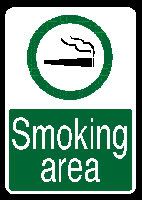 Lest folks think that NORML is unfairly biased toward one political party over another, let me reiterate that NORML and the NORML Foundation are required by law to be non-partisan.
Lest folks think that NORML is unfairly biased toward one political party over another, let me reiterate that NORML and the NORML Foundation are required by law to be non-partisan.
(I state this position, again, in response to recent posts proclaiming, inaccurately, that NORML is either pro-Democrat or pro-Republican. In truth, neither of these positions are true, and in fact, NORML’s endorsement of any party, including Greens or Libertarians, would be illegal.)
By contrast, the NORML PAC can raise funds to contribute to “pot-friendly” political officials at the local, state, or federal level. Since 2001, the NORML PAC has contributed over $37,000 to select politicians. These public officials are not selected because of their political party affiliation; they are selected because they have each made exceptional efforts to liberalize America’s antiquated and punitive marijuana laws.
Unfortunately, none of the four major Presidential or Vice Presidential candidates are prior recipients of NORML PAC funding — nor is it likely any of them will be in the future.
On the Democrat ticket, Presidential candidate Barack Obama has flip-flopped twice on the issue of decriminalizing marijuana (replacing arrests and jail terms with small fines) for adults. Although he has made statements supporting an end to federal interference in state medical marijuana laws, he has also expressed skepticism that cannabis has demonstrable therapeutic value, and has said that he would only favor its use under “strict” controls. As a Congressman, Obama has made little-to-no effort to advance marijuana law reform, and has championed various federal anti-drug provisions to increase drug law enforcement efforts both domestically and overseas.
 By contrast, Obama’s running mate, Delaware senior Senator Joe Biden — as noted here, here, here, and here — has a 35-year record regarding the drug war, almost all of it disgraceful. Biden’s most recent verbal support in favor of medical cannabis notwithstanding, the bottom line is that the Senator is a primary architect of the federal policies that have brought us: mandatory minimum sentencing in drug crimes, random workplace drug testing for public employees, the 100-to-1 crack versus powder cocaine sentencing ratio, the creation of the Drug Czar’s office, the RAVE Act, and America’s modern federal anti-paraphernalia laws (the statute that comedian Tommy Chong ultimately spent nine months in prison for violating). Most recently, Biden endorsed a nationwide ban on smoking, and he espoused the use of mycoherbicides such as Fusarium oxysporum — a genetically engineered fungal plant killer — in illicit crop eradication efforts.
By contrast, Obama’s running mate, Delaware senior Senator Joe Biden — as noted here, here, here, and here — has a 35-year record regarding the drug war, almost all of it disgraceful. Biden’s most recent verbal support in favor of medical cannabis notwithstanding, the bottom line is that the Senator is a primary architect of the federal policies that have brought us: mandatory minimum sentencing in drug crimes, random workplace drug testing for public employees, the 100-to-1 crack versus powder cocaine sentencing ratio, the creation of the Drug Czar’s office, the RAVE Act, and America’s modern federal anti-paraphernalia laws (the statute that comedian Tommy Chong ultimately spent nine months in prison for violating). Most recently, Biden endorsed a nationwide ban on smoking, and he espoused the use of mycoherbicides such as Fusarium oxysporum — a genetically engineered fungal plant killer — in illicit crop eradication efforts.
Predictably, the Republican candidates are no better. During his 26 years in Congress, Arizona senior Senator John McCain has consistently voted in favor of stricter drug enforcement in America and abroad, endorsed Nancy Reagan’s vapid “Just Say No” mantra, backed mandatory minimum sentences and even the death penalty for certain drug offenders, and has repeated scoffed at the notion of medical marijuana, even going so far as to turn his back on bonafide patients.
 McCain’s VP pick, Alaska Governor Sarah Palin, has by far the most limited record on drug policy. Like Obama, Palin is an admitted former pot smoker. However, unlike her running mate, Palin may have some sympathy for medical cannabis patients, having served as the Governor of one of the twelve states that has a legal therapeutic cannabis program and chosen not to speak out against it.
McCain’s VP pick, Alaska Governor Sarah Palin, has by far the most limited record on drug policy. Like Obama, Palin is an admitted former pot smoker. However, unlike her running mate, Palin may have some sympathy for medical cannabis patients, having served as the Governor of one of the twelve states that has a legal therapeutic cannabis program and chosen not to speak out against it.
In short, both party’s veteran candidates (McCain and Biden) are positively awful on drug policy, while the younger generation (Obama and Palin) may offer reformers at least some minor glimmer of hope.
Bottom line: regardless of who wins the Presidency, marijuana law reform will still be waged primarily on the state and local level — where our support and our victories — continue to grow.





















No comments:
Post a Comment